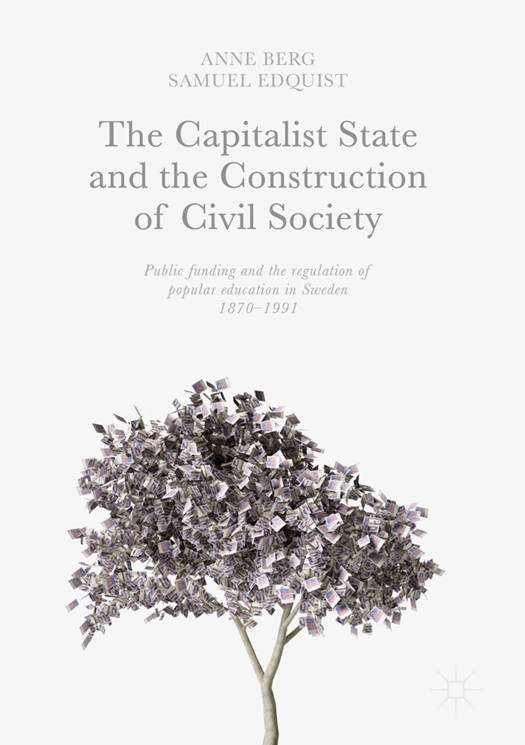
Door een staking bij bpost kan je online bestelling op dit moment iets langer onderweg zijn dan voorzien. Dringend iets nodig? Onze winkels ontvangen jou met open armen!
- Afhalen na 1 uur in een winkel met voorraad
- Gratis thuislevering in België vanaf € 30
- Ruim aanbod met 7 miljoen producten
Door een staking bij bpost kan je online bestelling op dit moment iets langer onderweg zijn dan voorzien. Dringend iets nodig? Onze winkels ontvangen jou met open armen!
- Afhalen na 1 uur in een winkel met voorraad
- Gratis thuislevering in België vanaf € 30
- Ruim aanbod met 7 miljoen producten
Zoeken
The Capitalist State and the Construction of Civil Society
Public Funding and the Regulation of Popular Education in Sweden, 1870-1991
Anne Berg, Samuel Edquist
Hardcover | Engels
€ 105,45
+ 210 punten
Uitvoering
Omschrijving
This book challenges the idea that a sharp boundary should be drawn between the state and civil society. Although this idea is extremely common in modern capitalist societies, here it is turned on its head through a study of the ways in which public funding from the 1870s to the 1990s has enabled and shaped collective action in Swedish popular education. Popular education has generally been seen as independent of government control, with strong connections to popular and labour movements; in this volume, Berg and Edquist narrate a new story of its rise by analysing how a government grant system was constructed to drive its development. A key element in this government policy was to create and protect popular education as an autonomous phenomenon, yet making it perform state functions by regulating its bureaucratic make-up and ideological content. The book will appeal to scholars and students of history, education, and sociology, particularly those with an interest in the workings of the capitalist state as well as the history of education.
Specificaties
Betrokkenen
- Auteur(s):
- Uitgeverij:
Inhoud
- Aantal bladzijden:
- 208
- Taal:
- Engels
Eigenschappen
- Productcode (EAN):
- 9783319524542
- Verschijningsdatum:
- 25/07/2017
- Uitvoering:
- Hardcover
- Formaat:
- Genaaid
- Afmetingen:
- 148 mm x 210 mm
- Gewicht:
- 512 g

Alleen bij Standaard Boekhandel
+ 210 punten op je klantenkaart van Standaard Boekhandel
Beoordelingen
We publiceren alleen reviews die voldoen aan de voorwaarden voor reviews. Bekijk onze voorwaarden voor reviews.











